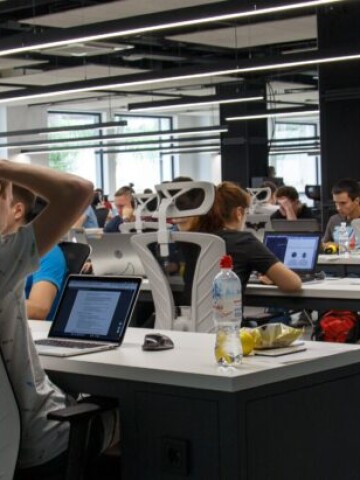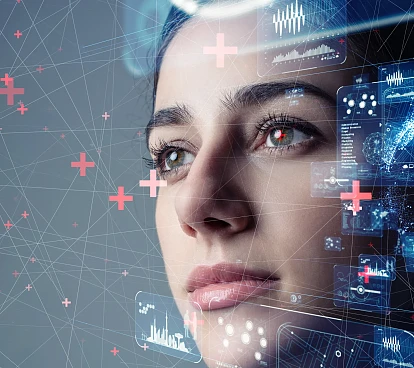
Demystifying Artificial Intelligence: A View of the Present and Future
June 15, 2023
For some years now, I've considered that artificial intelligence (AI) has "left the labs" to become a tool that is already present in many sectors, in a cross-cutting manner. In this article, I would like us to leave behind -- for now -- the science fiction myths related to General Artificial Intelligence and encourage you to explore AI as a tool, not only technological but also social and ethical.
Traditionally, we have trained with data sets using Machine Learning/Deep Learning algorithms in order to find patterns, to generate knowledge that is sometimes even imperceptible to the human eye. Successes, mistakes, and biases have led us to explore new paths, questioning beyond the technical. We learned that diversity in human teams and in data sets is essential to detect and mitigate biases in a technology that is deciding more and more aspects of our lives. Today I bring three topics of social impact that, linked to the advancement of AI, are sure to be of interest: work, information, and regulation.
AI and the Future of Work
The disruption that AI could cause in the labor market is a major concern. However, I believe that the impact will largely depend on the specific job. At a meeting with Sam Altman in Madrid in which I had the opportunity to participate, he himself quoted "AI can do tasks, but not jobs". This seemed like a phrase that nicely sums up the thinking of many experts who have been in this field for years. AI shows its greatest strength in defined contexts and repetitive tasks, such as detecting anomalies, transcribing audio, or extracting specific information values from a document like a simple note. This type of AI is what we call Specific AI. However, more cognitive tasks, like reviewing the coherence of a text, are hard to fully automate. Collaboration, not substitution, is the future of the relationship between humans and machines.
The Challenge of Deepfakes and Synthetic Generation of Videos and Voices
Alongside positive progress, the rapid evolution of generative AI has raised concerns about ethical and security challenges that may arise. Specifically, I am referring to deepfakes and misinformation.
The ability to generate synthetic voices and videos that appear authentic can be used maliciously, jeopardizing the veracity of information and exacerbating misinformation and trust issues.
There are efforts, still in the research and improvement phase, to limit these potential abuses, while awaiting more regulation. The solutions proposed for deepfakes seek to improve the transparency and traceability of these files, introducing a kind of unique "digital signature" that cannot be removed and provides information on how the content was generated.
AI Regulation in Europe
In Europe, the first AI strategies date back to 2017. A draft on AI regulation has existed for more than two years, as it is a matter that has gained relevance in recent years. In an effort to increase the transparency and accountability of AI models, the European Union could require more clarity from these systems. We are living in a technologically astonishing time, where AI has unlocked part of its potential.
However, I like to make a simile around the regulation of AI with the advances in private cars. Little by little, the car has been given layers and layers of safety: seatbelts, airbags, ITV (technical vehicle inspection), sensors... even now they are more sustainable thanks to electric motors. Now let's think about AI,... we could see the implementation of a series of audits designed to provide greater transparency in how AI systems operate, to trace in a certain way with what data the models have been trained, to give them an "ITV" that will give us more security when using them in our daily lives. The first hints already exist, such as model cards or licenses designed for AI models.
As we've seen, artificial intelligence has moved beyond being a concept of science fiction to become a reality present in many areas of our lives and our work. In this way, as we progress, it's critical to address the ethical and security challenges that arise, promoting necessary transparency and regulation to fully leverage the potential of AI for the benefit of society.
Our latest news
Interested in learning more about how we are constantly adapting to the new digital frontier?

Insight
February 18, 2025
The Transformative Power of AI in Health and Pharma

Tech Insight
February 11, 2025
Unlocking the tech potential in international pharmaceutical tender management

Tech Insight
January 31, 2025
Galen, SNGULAR’s comprehensive generative AI solution for hospital environments

Insight
December 10, 2024
Groundbreaking technologies today that will reshape the innovation landscape in 2025
